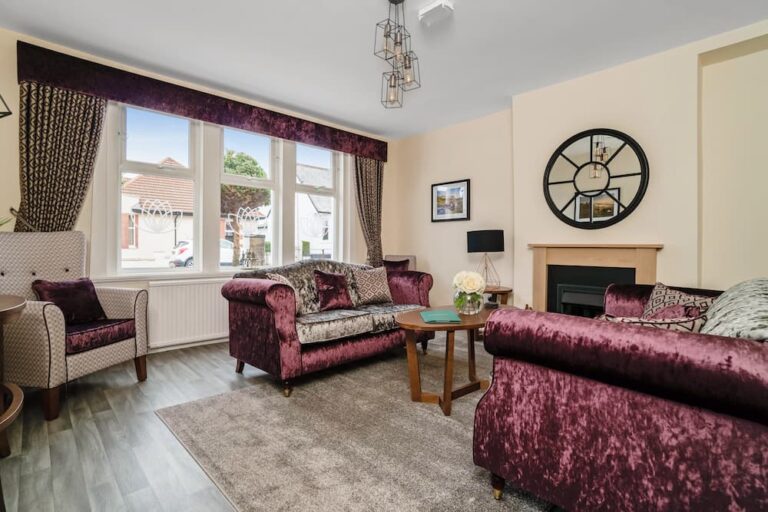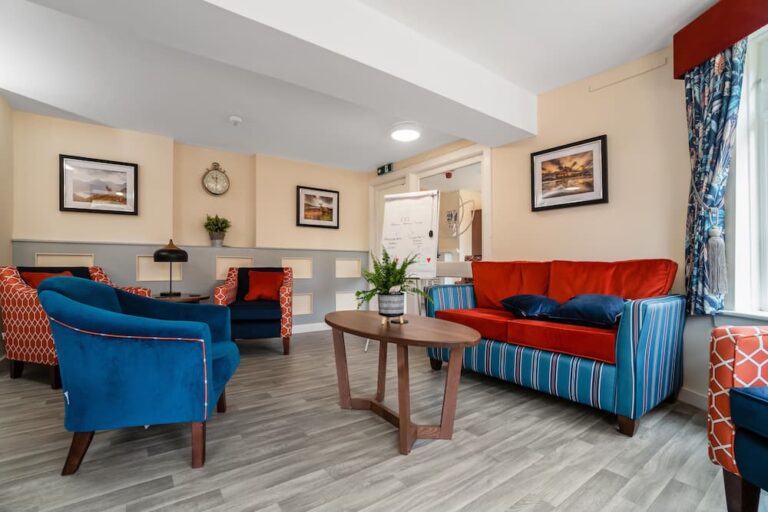Envision how life-altering being physically scared of open space must be. Imagine how difficult it must be to live in fear of leaving home. Picture the torment of constantly needing escape plans from certain environments. All of these portrayals in fact showcase the symptoms of agoraphobia and drug or alcohol addiction.
 Get in Touch
Get in Touch
Our admissions team can give you expert help and advice on the best options available for treating agoraphobia and addiction, get in touch today to find out more about our dual diagnosis programmes.
Agoraphobia is one of the most common, specific phobias accounted for and linked to panic disorder. It’s found that 2 in every 100 people will experience a degree of panic, and a third of those will then develop symptoms of agoraphobia.
Commonly developed through adulthood, agoraphobia is mainly defined as the fear of open, uncontrollable spaces. However, there are many more complex experiences, linked to environmental worries, which cause the reflection of social anxiety.
From staying home with the intention to avoid mass public presence to the fears of being alone and risks of certain environments and the avoidance of them down to a lack of escape plans, agoraphobia can manifest in a number of different ways.
Such fear can be very difficult to live with, reducing the ability to lead a normal life full of adventure and social exposure. It can also lead to substance addictions forming, such as drug and alcohol addiction.
While worrying about certain risks is normal, if you are struggling to experience exposure to open spaces, have attachment issues, or place significant emphasis on the fear of emergencies, it’s time to consider agoraphobia treatment.
At Nova Recovery Scotland, we offer dual diagnosis treatment programmes to help you come to terms with and work through your symptoms of agoraphobia and addiction issues. We are experts in treating addiction and mental health issues as part of our dual diagnosis treatment programmes.
The true meaning of agoraphobia
‘What is agoraphobia?’ is a common question which we receive here at Nova Recovery Scotland, surrounding personal concern of fear or phobia. Many individuals lack awareness of its true meaning, as it’s mainly linked to the concern of open spaces.
Agoraphobia reflects the fear of settings that are wide-spanning, however, it can also describe a number of different behaviours, all surrounding the hazards of environments or engagements.
Symptoms of agoraphobia can be triggered by using public transport, visiting populated areas, visiting new settings, being alone within such settings, leaving the house to engage in open areas, and concerns over personal safety.
While some of these behaviours also mimic those of social anxiety and generalised anxiety, agoraphobia is an independent phobia, which can be diagnosed medically through physical examination and avoidance assessments.


Scotland Based Mental Health & Addiction Treatment Providers
Key offerings available include:
- Drug and Alcohol Rehab in Scotland
- 1:1 Support from Clinical Nurse Practitioners, Registered Mental Health Nurses and Therapists
- Access to Trained Psychiatrists
- 24-Hour Nursing Care
- Comfortable & Quality Accommodation
- Clinically Led Recovery Model Underpinned by Cognitive Behavioural Therapy (CBT)
- 1 Year Aftercare
So what are you waiting for?
Begin your journeyCauses of agoraphobia disorder
Agoraphobia is a direct consequence of panic. The majority of individuals who experience such fears have pre-existing experiences of panic attacks and symptoms of panic, which have subconsciously been attached to certain areas, surroundings or actions.
For example, panic may have been experienced on public transport, which has now developed into a phobia, resulting in a reduced inclination of utilising public transport in the future. Feelings and emotions can be transmitted and remembered, which if traumatic or fearful, can be pinned to certain stimuli, amounting to symptoms of agoraphobia.
Panic may not be the catalyst for every individual. Trauma, stress or genetics can increase the vulnerability of agoraphobia for some people. However, panic is a common cause, which if untreated or undiagnosed, can develop into specific phobias, such as agoraphobia.
Agoraphobia symptoms
As phobias are linked to both panic and anxiety disorders, there’s a high chance that many of the symptoms will be mutual. Those mutual symptoms include:
- Feelings of uncontrollable panic
- Physical symptoms including heightened heart rate, risk of palpitations, irritability, sweating, tremors, shakes and stomach cramps
- The constant feeling of worry
- Reduced self-awareness and confidence
- Unjustifiable feelings of depression, panic and/or anxiety
- Mental health issues, standing as secondary symptoms
Symptoms specific to agoraphobia that are considered for a diagnosis include:
- Fear over leaving the house
- Extreme worry over visiting new places
- The need for an escape plan for every visit
- Overthinking every visit outside of the home
- The avoidance of certain places or settings
- The inclination to visit areas with mass interest
- The use of avoidance strategies to avoid leaving the house or visiting certain areas
- Feeling uneasy while alone, whether at home or within open spaces
Paired together, it’s clear to see how impactful agoraphobia can be as a disorder. The physical symptoms of anxiety can be difficult to live with, never mind the pairing of fear or overthinking.
If you’re experiencing any of the above symptoms and also struggle with alcohol or drug addiction, looking for a medical diagnosis will be encouraged, followed by the completion of addiction and agoraphobia treatment.
Addiction and agoraphobia treatment here at Nova Recovery
Just by considering the symptoms of agoraphobia, it’s clear to see the severity that such fear can have on life. The simplest task of taking public transport or visiting a shop can be deterred by extreme feelings of anxiety.
Down to this, if you’re struggling, we encourage you to consider agoraphobia treatment, available here at Nova Recovery if you also suffer from addiction.
Focusing on the development of agoraphobia, psychological treatment options will be the most beneficial, to understand the deeper causation of such fear, while desensitising natural responses.
Cognitive behavioural therapy is one of the most recommended forms of treatment for phobias and substance abuse as it works through stepping stones of uncovering causations, offering clarity, and changing responses.
Lifestyle changes will also be recommended throughout substance addiction and agoraphobia treatment, as symptoms of anxiety can be regulated for some individuals by prioritising routine. You’ll be encouraged to experience balance, focus on your nutrition, and avoid unhealthy coping strategies.
Therapy will also play a part in treatment, to assess how progress is going and to understand whether management can be fulfilled. Therapy is highly beneficial as it provides a clear insight into responses, prior to leaving rehab.
Medications can be prescribed to help you through the detox and rehab treatment. However, as such behaviours can already lead to depression, medication will be the last resort to avoid the risk of dual diagnosis.
Through focused, suitable and personal recommendations of agoraphobia treatment, symptoms can be suppressed, understanding can be formed around causations and management tools can be promoted to help ease the fear of open spaces and treat your addiction.
At Nova Recovery we are equipped with appropriate treatment at our drug and alcohol rehab in Scotland.
Contact our team for more information on agoraphobia treatment, along with the diagnosis process.
John Gillen
- Author
- Last updated: July 10, 2023
John has travelled extensively around the world, culminating in 19 years’ experience looking at different models. He is the European pioneer of NAD+ (Nicotinamide Adenine Dinucleotide) treatment to Europe in 2010; and recently back from the USA bringing state of the art Virtual Reality Relapse Prevention and stress reduction therapy. His passion extends to other metabolic disturbances and neurodegenerative diseases. The journey continues. In recent times, John has travelled to Russia to study and research into a new therapy photobiomudulation or systemic laser therapy working with NAD+ scientists and the very best of the medical professionals in the UK and the USA, together with Nadcell, Bionad Hospitals own select Doctors, nurses, dieticians and therapists. Johns’ passion continues to endeavour to bring to the UK and Europe new developments with NAD+ Therapy in preventive and restorative medicine and Wellness. In 2017 John Gillen was made a visiting Professor at the John Naisbitt university in Belgrade Serbia.






